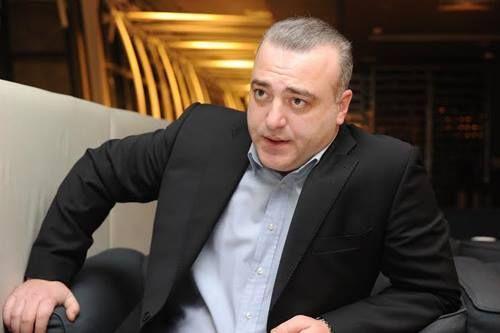Georgia divided over controversial “foreign agents” law Political tensions escalate
The political situation in Georgia cannot be described as anything other than difficult. The law on foreign agents presented by the country's ruling party, which Georgia was quick to call a "Russian law", has literally split society into supporters and opponents of the initiative. It is expected that on April 30, the Parliament will consider draft law "On transparency of foreign influence" in the second reading.
And what is the opinion of Georgian political scientists on this issue? Caliber.Az correspondent listened to the points of view "for" and "against".

Thus, according to Georgian expert on international relations, political scientist Irakli Gogava, Georgia has been dragged into the colonial economic model of the "Washington consensus" for the past 30 years.
"Our country has been on external governance for a long time. The current government does not agree with this arrangement and, feeling the full support of the Georgian people, has declared a struggle for sovereignty. This is Georgia's revolt against colonial rule. We are not against the West, many people want to maintain relations with the West, but on the basis of respect for Georgia's sovereignty. Today this is not the case. We are spoken to like colonizers speak to a native tribe. This has come to an end. We will make everyone respect Georgia! People and authorities are united in this regard today. Georgia will not be anyone's colony" - the political scientist stated.
According to Gogava, the "colonial rule" is taking place under outside pressure and with the help of an internal fifth column that is generously funded from foreign countries.
"About 20,000 people are sitting on the payroll of foreign countries in Non-profit organizations (NPO), and about the same number of sympathetic activists have joined them. This is the cluster that is protesting against the proposed “On Transparency of Foreign Influence” law, which implies mandatory declaration of incoming foreign money. Azerbaijan has long ago settled issues related to grants. Rich NGOs are a colonial administration, and you have done the right thing to curb them. They do more harm than good. Georgia is now trying to curb this instrument of external influence. Naturally, these people do not like the fact that they will be officially recognized as "representing the interests of foreign forces". Similar laws have been passed by the USA, Australia, Great Britain, France (lower house), Hungary, Russia... They are about to be adopted in the European Parliament and in a number of other countries. But the law is just a reason for protest. The West's protest is related to Georgia's desire to free itself from the colonial yoke and external governance," the political scientist emphasized.
According to him, foreign coup d'état technologists, who are currently testing the methodology, will thoroughly study the issue and report to their masters that a coup in October after the parliamentary elections in Georgia is impossible. Next, the West will have to renew relations with Georgia and sit down at the table with our authorities. The model of relations that is in place now does not correspond to our interests. It is mainly the West that benefits. It will not be like that anymore. We will force and teach them to respect the sovereignty of Georgia. And if the West makes a wrong choice and attempts a coup d'état, they will lose Georgia for a long time. Our requirements are very clear: respect Georgia's sovereignty, do not interfere in internal affairs, do not impose ultra-liberal ideology and build mutually beneficial economic relations. For example, I will tell you one figure from our sociology: only 12 per cent of the Georgian population will accept membership in the EU if it implies mandatory acceptance of the LGBT agenda. By the way, 10-12 per cent is the average homeostatic plateau of marginalized people in any normal country," Gogava said.

At the same time, another Georgian political scientist Givi Gagnidze believes that the fight against the new initiatives of the ruling party is the only way out in defence of Georgia's western path, its numerous reforms that have been consistently changing Georgian society for many years.
"The adoption of this law will essentially throw Georgia back to the past, to the post-Soviet camp of countries isolated from the West, deprive us of hopes and prospects. I think that the adoption of this law will practically leave Georgia with no chance of ever becoming a part of the European Union - the US and the EU have already stated this. And how one cannot react to these signals is very difficult to understand. A lot of Georgians used to consider themselves almost citizens of Europe, it was just a little bit left, and then as if someone grabbed Tbilisi by the scruff of the neck in an iron grip. This someone, in fact, is the ruling party, which can easily reject the path of European integration of Georgia in favor of its political swamp, where it is so convenient for them to exist.
A great number of Georgians, if this law is adopted, will be left on the sidelines of public life, without means of subsistence, and only because the ruling political class of Georgia has decided to limit the thoughts and actions of many young Georgians, because it fancied the threat of losing power," Gagnidze concluded.








